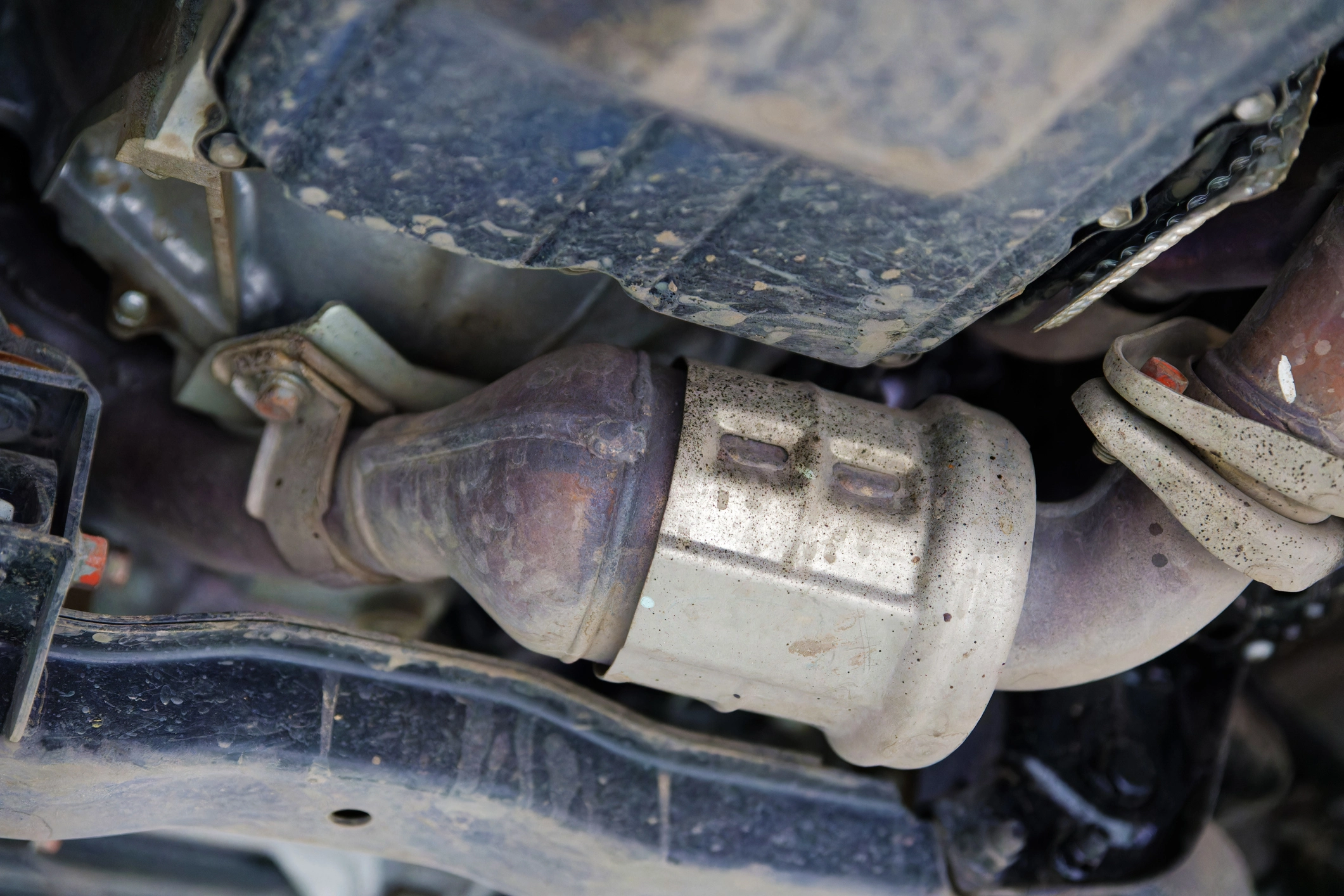A House committee considered three bills Wednesday that seek to tamp down on catalytic converter thefts.
Rep. Don Mayhew, R-Crocker, is sponsoring legislation that would make it a felony to possess a catalytic converter with the intent to sell it.
Catalytic converters filter out harmful pollutants from vehicle emissions, and thieves target them because they are easy to remove and valuable to sell, as they contain the rare earth metals of palladium, platinum and rhodium.
A second bill also sponsored by Mayhew would require someone selling a converter to prove they are a “bona fide auto repair shop” or have otherwise legally acquired it. It is currently illegal to knowingly buy a stolen converter, but the bill would also criminalize unknowingly purchasing one as a misdemeanor. Mayhew advanced a version of the same legislation last year.
Rep. Aaron Crossley, D-Independence, is sponsoring an identical bill.
Mayhew said thieves are stealing catalytic converters at “epidemic levels throughout the state.” He added that the profit thieves make from selling converters to fences is also feeding the state’s fentanyl problem.
“Getting a handle on it is imperative, not just for the damage that it causes to those folks who get a catalytic converter stolen, but also to help in the fight against illegal drugs,” Mayhew said.
Trent Ford, a lobbyist on behalf of the mid-America chapter of the Institute of Scrap Recycling Industries, testified in support of making it a felony to possess a catalytic converter with intent to sell it, arguing it would help law enforcement prove that a catalytic converter has been stolen.
Fort argued Mayhew second proposal was unnecessary because scrap metal dealers “have every bit of record keeping” they could possibly have.
Shannon Cooper, a lobbyist on behalf of Advantage Metals Recycling, said additional record-keeping would overburden law enforcement, who are understaffed and overworked. He said any law against stealing or selling converters would not deter thieves “one iota.”
“When you pull into our facility, from the moment you arrive, we begin taking photos of you, your vehicle, the product you’re selling us,” Cooper said. “We take a photograph of your driver’s license, we take a photograph of you receiving your payment. So we have every bit of information necessary for our friends in the law enforcement world.”
Kevin Hillman, the prosecuting attorney of Pulaski County, said both bills would give him the tools he needs to prosecute converter thefts. He said the documents of proof would make it easier for officers to identify whether converters are stolen or legitimate.
“It’s very difficult when we find somebody with just a couple of catalytic converters in the back of the car,” Hillman said. “They’re clearly up to something fishy. They have no real legitimate purpose, but we can’t trace where those came from, and we can’t trace where they’re going.”
Rep. David Tyson Smith, D-Columbia, said he was concerned that the bill leaves it up to officers and prosecutors whether someone has a “legitimate business purpose” for possessing a converter.
Hillman said he trusts officers and prosecutors to be able to tell the difference, especially because an illegally-cut converter is usually distinct from a converter that has been removed by a professional.
Randy Scherr, governmental consultant for the Missouri Auto Truck Recyclers Association, and Michael Gibbons, representing Enterprise-Rent-a-Car, both said catalytic converter thefts were negatively affecting business.
Scherr said every member of the association refuses to buy single catalytic converters for fear they are stolen. Gibbons said thieves have taken converters from many Enterprise cars, costing the company thousands every time.
“We’re getting a black eye out of this,” Scherr said. “(The association) support these bills because there is a problem. We’d like to do what we can to solve it.”
Source: Fox2Now















